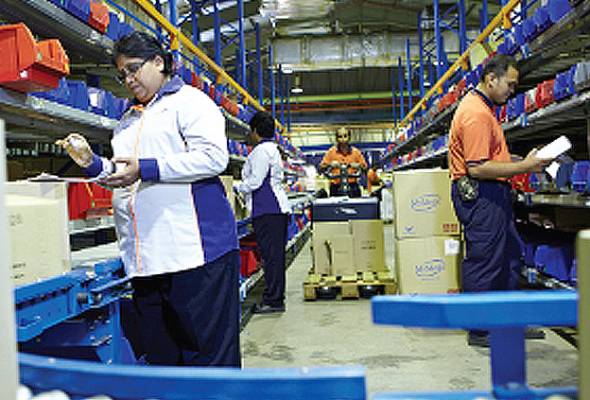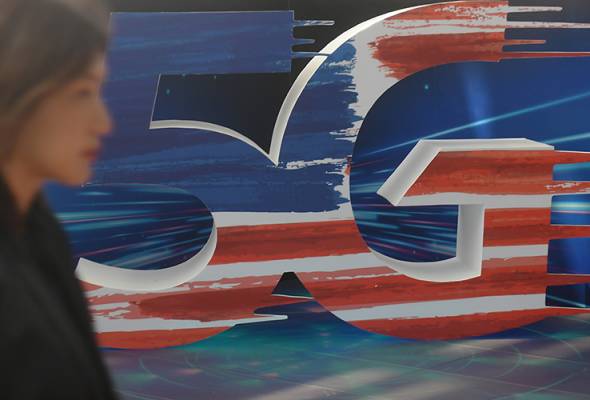
Published in AstroAwani, image by AstroAwani.
Gripes from medicine producers and suppliers in Malaysia include the apparent “monopoly” by Pharmaniaga Berhad or its related subsidiaries in the procurement of certain drugs for the Ministry of Health (MOH). Other quarters, including politicians and think tanks have also expressed similar concerns.
Pharmaniaga released a press statement on March 30, 2023, vehemently dismissing these claims.
In particular, Pharmaniaga stated that the MOH spent approximately only 35% of its pharmaceutical spending via Pharmaniaga. This attempts to show that from the perspective of total drug expenditure, the sum handled under Pharmaniaga is not reflective of a monopoly.
As far as this statement is concerned, past data by the Malaysia Competition Commission (MyCC) did report a similar figure of 38.5% of the total cost of medicines procured for all MOH hospitals, institutions and clinics in 2015 supplied by Pharmaniaga. Therefore, this figure falls in the ballpark.
A Monopoly in Supplying APPL Products
In any case, Pharmaniaga’s rebuttal misses two crucial points. Firstly, although the Ringgit value supplied could be 35%, this involves a 100% monopoly of the products under MOH’s Approved Product Purchase List (APPL).
Secondly, the products on the APPL distributed by Pharmaniaga (over 700 products; medical items and medicines) reportedly represent over a third of the government’s drugs and medicines.
The MOH obtains its medical supplies and pharmaceutical products for public hospitals and clinics through three procurement channels: the APPL, direct tender by the MOH (national tender), and the Local Purchase Order (LPO) by MOH facilities.
The MyCC’s report on the pharmaceutical sector in 2017 defines the APPL as a “list of items supplied by Pharmaniaga Logistics Sdn. Bhd. under its concession with the MOH”. It is understood that the APPL consist of the common daily medications which are usually in high demand, among other medical products.
Pharmaniaga has an exclusive concession to supply products under the APPL programme. According to the MyCC, all tenders for APPL items must go through Pharmaniaga Logistics.
Thus, any expansion to the APPL by the MOH directly and automatically benefits Pharmaniaga without competition.
As stated in Pharmaniaga’s press release dated November 24, 2022: “We [Pharmaniaga] also registered a robust growth in the concession business as additional products were added by the Ministry of Health into the Approved Products Purchase List (APPL).”
Pharmaniaga has benefitted from the exclusively-awarded concession totalling over 25 years.
The first issue with being the only player to supply APPL products to MOH is that the suppliers (vendors) may have no choice but to deal with Pharmaniaga. The lack of choice and therefore, competition, could lead to supply contract deals that are unfair to both the MOH and the vendors.
Pharmaniaga Integrated Report 2021 shows that the group distributes products on the APPL from more than 90 suppliers.
It is also an issue if the concession also involves procurement. In this case, a non-transparent monopoly involving procurement could result in unfair commercial terms, where, for example, MOH may have little choice but to accept being charged a certain markup on top of the price obtained from suppliers.
The second issue is the supply chain’s single point of failure. Operational and/or financial problems with Pharmaniaga risk the supply of medical products under the APPL being disrupted.
Pharmaniaga’s March 30 press release maintained that the group’s role is limited to logistics, distribution and drug stockpiling, while the selection of suppliers, products and prices are under the MOH. The former deputy health minister Dr Lee Boon Chye also reportedly supported these claims back in 2019.
However, Galen Centre for Health and Social Policy chief executive officer Azrul Mohd Khalib reportedly pointed out that Pharmaniaga’s role (as part of its exclusive concession) includes purchasing, storing, supplying and distributing the APPL products.
This could mean an unnecessary price increase that burdens the taxpayers if “purchasing” entails Pharmaniaga supplying APPL products to MOH at a price increment from the price it obtains from its vendors.
Either way, aside from stockpiling infrastructure, it is unclear why APPL products cannot be sold through the LPO markets if Pharmaniaga’s role is only in logistics and distribution—which would already incur costs.
Lack of Competition Can Lead to “Bullying”
Having only a single concessionaire for the APPL products, potential unfairness in supply terms could manifest in more ways than one.
For example, instead of a fixed logistics fee, or one that ties to the distance and weight of products (common matrices to determine logistics costs), an unfair term could be based on the percentage of the value of goods transported, which makes absolutely no sense.
The potential impact of such a term would be higher prices charged to MOH, therefore higher public expenditure. A worrying consequence is also the lack of motivation to find cheaper supplies. The more expensive the drug is, the more the logistics charges would be.
Certain suppliers or vendors have expressed great dissatisfaction with what they deem as unfair supply contract terms. Given that the suppliers have no choice but to go through Pharmaniaga to supply APPL products, the vendors express a lack of negotiation power to formulate more favourable deals.
The lack of competition for better rates and terms can lead to abuse of the one party holding all the cards.
As an example, unfavourable terms may include:
- Requirement for vendors to keep buffer stocks (in terms of average month supply) without guarantees of when and how much of the stocks would be taken;
- Potential charging of penalties if the buffer stocks fall below the required stock level;
- Freedom to request for stock delivery without considering the value of the stocks being delivered (for example, small delivery over a distance that makes a loss to the suppliers);
- Imposing delivery specifications such as pallet occupancy and lorry specifications—which could be due to the products’ requirements—but with disregard to the cost-effectiveness of the suppliers; and
- Unrevised buying price despite changes in input costs
Such terms place a heavy working capital burden on the vendors to produce the stocks and increase their risk of stock write-off if products exceed a certain level towards the expiry date.
Non-delivery can be considered non-compliance with the supply agreement. This can lead to order non-fulfilment issues which may allow Pharmaniaga to retract its purchase order and grant it to other vendors.
It is likely that these terms were originally meant to ensure a continuous supply, particularly in the event of disruptions or higher demands. But, there must be a way to fairly distribute every player’s financial risks in the supply chain.
For example, Pharmaniaga gets a guarantee (payment and stock uptake) from the MOH so that they can (must) formulate better deals with vendors by reflecting this in a “back-to-back” payment and stock uptake guarantee.
Any financial implications arising from variations to these guarantees must be borne by whichever party caused the variation. If MOH fails to pay in time and stocks exceed their expiry limit, then the MOH must pay for the disposal and renewal of stocks. Similarly, Pharmaniaga should bear the costs incurred by suppliers/vendors if Pharmaniaga fails to take up stock and/or pay up in time.
This overcomes the issue of requiring a certain level of buffer stock as vendor’s risks have been mitigated, ultimately ensuring medicine and medical supply stocks.
In short, without fairer terms such as these, it is difficult for suppliers to keep their business afloat and they have no choice but to accept unfavourable deals.
In a subsequent article titled “Restructure the Medicine Procurement and Supply Chain Ecosystem”, EMIR Research presents the potential risks surrounding Pharmaniaga’s role and its financial situation and key recommendations moving forward to address these issues.
Dr Rais Hussin and Ameen Kamal are part of the research team of EMIR Research, an independent think tank focused on strategic policy recommendations based on rigorous research.

